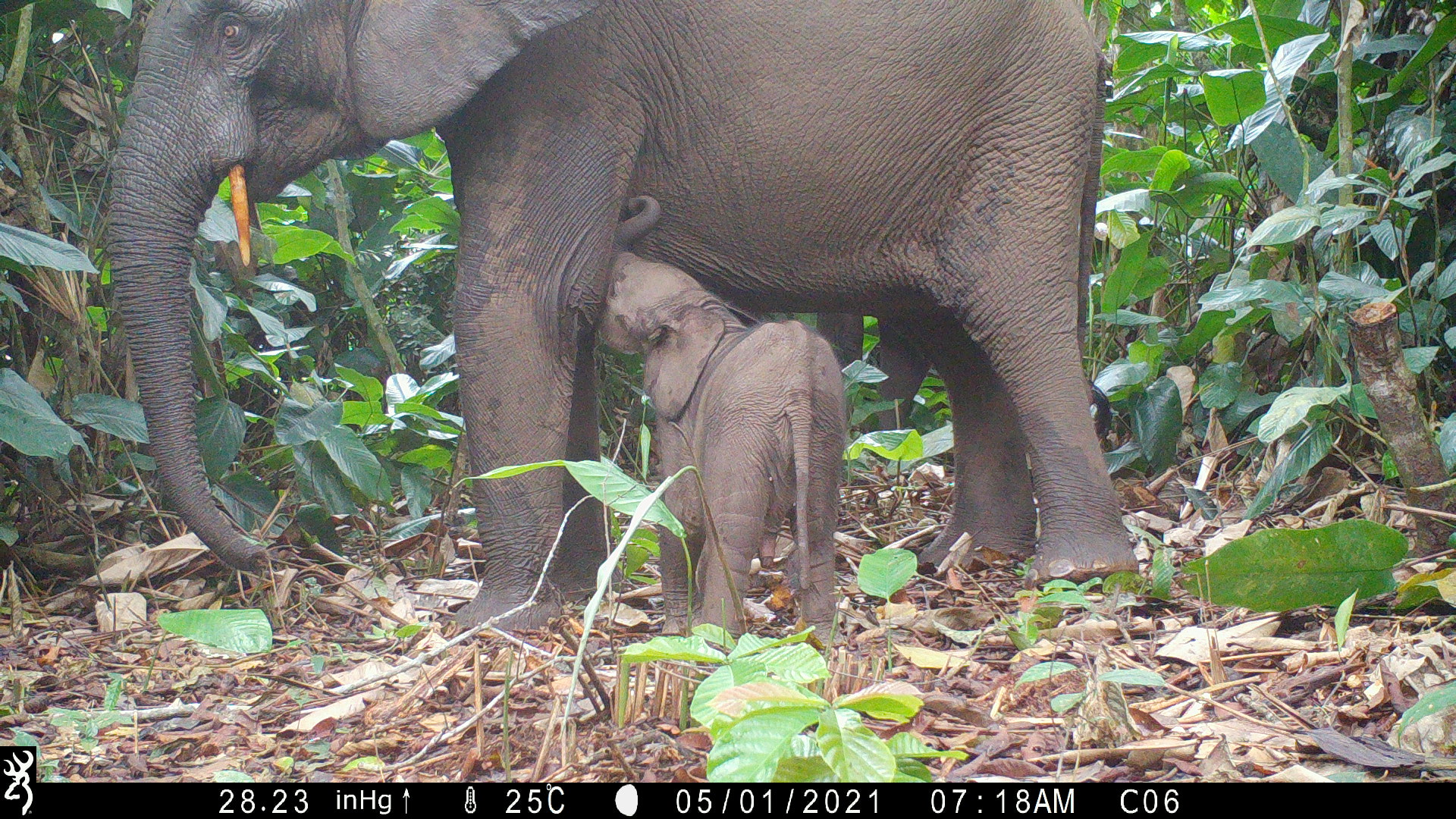 More than a quarter of the world’s tropical forests are exploited for timber1. Logging impacts biodiversity in these ecosystems, primarily through the creation of forest roads that facilitate hunting for wildlife over extensive areas. Forest management certification schemes such as the Forest Stewardship Council (FSC) are expected to mitigate impacts on biodiversity, but so far very little is known about the effectiveness of FSC certification because of research design challenges, predominantly limited sample sizes. Here we provide this evidence by using 1.3 million camera-trap photos of 55 mammal species in 14 logging concessions in western equatorial Africa. We observed higher mammal encounter rates in FSC-certified than in non-FSC logging concessions. The effect was most pronounced for species weighing more than 10 kg and for species of high conservation priority such as the critically endangered forest elephant and western lowland gorilla. Across the whole mammal community, non-FSC concessions contained proportionally more rodents and other small species than did FSC-certified concessions.
More than a quarter of the world’s tropical forests are exploited for timber1. Logging impacts biodiversity in these ecosystems, primarily through the creation of forest roads that facilitate hunting for wildlife over extensive areas. Forest management certification schemes such as the Forest Stewardship Council (FSC) are expected to mitigate impacts on biodiversity, but so far very little is known about the effectiveness of FSC certification because of research design challenges, predominantly limited sample sizes. Here we provide this evidence by using 1.3 million camera-trap photos of 55 mammal species in 14 logging concessions in western equatorial Africa. We observed higher mammal encounter rates in FSC-certified than in non-FSC logging concessions. The effect was most pronounced for species weighing more than 10 kg and for species of high conservation priority such as the critically endangered forest elephant and western lowland gorilla. Across the whole mammal community, non-FSC concessions contained proportionally more rodents and other small species than did FSC-certified concessions.
Additional coverage from FSC: Groundbreaking study confirms FSC standards are vital for thriving wildlife in tropical forests